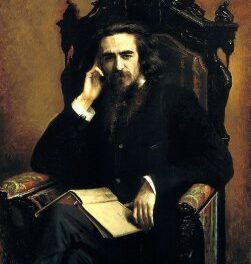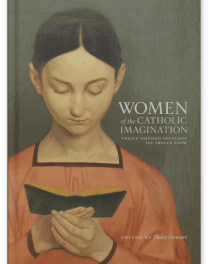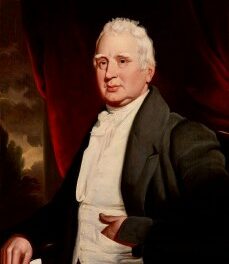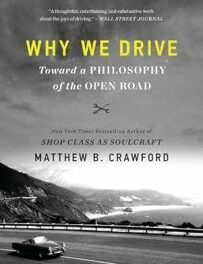We support our Publishers and Content Creators. You can view this story on their website by CLICKING HERE.
To anyone who feels beaten down by the bleakness of the world around us, my advice is this: seek to rise above the soundbites and thought-clichés of journalism, politics, and academia. Instead, inquire about the truth from the great tradition. Keep the sabbath, cultivate the soul and the mind, study nature. Maintain that flame of inner joy that no one can take from you.
In modern times, “the holiday season” has developed into a complex of time spanning Halloween in late October to New Year’s as December turns to January. This two-month span takes us from the anticipation of death to the birth of the Son of God, and finally to the freshness and new beginnings—in the midst of bleak midwinter. In secular life it is something of an extravaganza, a feeding and buying frenzy. And in truth, our celebrations of the holidays have in many cases fallen into a lot of habitual falderol, a song-and-dance routine devoid of inner meaning.
We IC’s (imaginative conservatives) can act as lights to the world through our connection to the great tradition. We can recognize that, despite having become highly secularized, this suite of holidays still retains its religious core. The fact that is this chunk of time bears numerous spiritual associations, and retains a kind of grand liturgical structure that shines through all the secularism.
At the core of this suite of holidays, as observed in the United States, is the feast of Thanksgiving, in which we reflect on the blessings we have received from God. In a way this recollection launches us into Advent, the Church’s New Year, in which we reflect on Christ’s coming in historical time, his arrival in our hearts in the present, and his eventual return at the end of time. The giving of gifts during this season symbolizes our gratitude for God’s gifts in creation, especially the supreme gift of God’s Son. Finally comes the secular New Year’s, which can be an occasion to set forth some plans for spiritual growth and renewal. If you look at things the right way, life bursts with fresh possibilities.
New Year’s, my mother once declared during a bleak patch of time, is “a holiday for drunks and cock-eyed optimists.” It is easy to get beaten down with the sense that things are getting progressively worse, and each year will be bleaker than the last. But of course, faith teaches us a different perspective, and it is this and this alone that keeps me going through time. Time is, of course, a gift of God, the medium in which he reveals himself and reveals us to ourselves; time is of the essence.
Over the past year the good Lord has led me by the hand and opened various portals and vistas of thought and experience to me which I feel can lead me forward. My life thus far has had no dramatic reversals or conversions but has rather been a steady unfolding and clarifying of the elements that were there from the beginning. This has involved, however, a progressive withdrawal into solitude and contemplation.
I have read a good many fine books this past year and been given the opportunity to ponder over them in print. I have continued my studying of the classics of Western art and music, with the aid of museums, concert halls, and recordings, and been given the chance to ply the musical trade a bit. I have also enjoyed access to journals of opinion (like this one) in which I can relish the fresh air of clear thinking and stimulating intellectual exchange. All in all, I have continued to immerse myself in the world of culture, and I am grateful to live in a country and a time in which such things are readily available. While I have had my usual physical ailments, God has also given me premonitions of healing. Improving my prayer life is an ongoing effort, and I intend to start off the year praying the Liturgy of the Hours on a regular basis. Thanks to the subscription offered by the Word on Fire Institute (Bishop Robert Barron’s fine organization), I will be receiving a handsomely produced prayer volume in the mail every month.
From the earliest days of the Church, the center of Christian preaching was the arrival of the Good News of God’s reign, involving the destruction of sin and death, the establishment of perfect justice, and the renewal of all creation. But gradually, over time, this message slid into an attitude that saw this life as something of low worth to be patiently endured until we die and “go to heaven.” This model may have an element of truth, but it is not orthodox teaching in its fullness. It is, if anything, a popular reduction tainted with Platonism. The message of St. Paul and the apostles was that God’s kingdom was something irradiating into our present lives, gradually overtaking us. This is not to override the reality of bodily death, but only to underline its ultimate defeat.
Christian faith involves the belief that God has great plans in store for every human being, right here and now, and for all the rest of creation. We are huddled together, hurtling toward eternity, but eternity is coming to us. I admit, I am a spiritual optimist, a Positive Thinker on ultimate questions, even though pessimistic about the City of Man around us.
Specific resolutions? I have a few.
“Go forth backwards.” I am going to burrow ever more deeply into the past, finding riches in Western culture and finding ways to re-present them.
“Search for order.” Always seek greater organization—in my mind, in my external surroundings, and in my management of time, that precious commodity. Always resist chaos, within and without, and seek harmony and balance.
“Make prayer a pleasure rather than a duty.” I hope to be able to approach God in prayer with the same willingness and enthusiasm that I presently have toward activities like reading or listening to music. At present I am quite a way from this ideal, but I am learning.
In sum, I hope to keep on doing what I have been doing. Life in the past several years has been an adventure of the mind and spirit. As a freelance student of Western civilization, I want to continue absorbing and reflecting—delving deeply into creation so as to reflect it back. In meditating on faith, I intend to open myself to rational proofs, plausible arguments, rumors of the miraculous, areas where heaven and earth touch.
As an example, I was very much inspired this Christmas season by reading Fr. Dwight Longenecker’s book documenting his research on the Magi. This is the sort of quest that gets the spiritual juices flowing; intrigued by the recent discoveries about the Holy Shroud of Turin, I will be following them up too. Many books read during the past year have put me on the scent of particular trails of truth, of an enlargement of appreciation for beauty and culture, and fresh themes and unusual ideas to pursue and develop further. God only knows what adventures the young year will bring.
To anyone who feels beaten down by the bleakness of the world around us, my advice is this: seek to rise above the soundbites and thought-clichés of journalism, politics, and academia. Instead, inquire about the truth from the great tradition. Keep the sabbath, cultivate the soul and the mind, study nature. Maintain that flame of inner joy that no one can take from you. Our God is a living God; “My Father is working still, and I am working” (John 5:17). The transformation of our minds and lives is not in a distant, disembodied future; it is proceeding apace right now. “Do not be conformed to this world but be transformed by the renewal of your mind, that you may prove what is the will of God, what is good and acceptable and perfect” (Romans 12:2). Let us continue our pilgrimage with heads held high.
The Imaginative Conservative applies the principle of appreciation to the discussion of culture and politics—we approach dialogue with magnanimity rather than with mere civility. Will you help us remain a refreshing oasis in the increasingly contentious arena of modern discourse? Please consider donating now.
The featured image is “Einsamer Wanderer vor nächtlicher Kirche (Lonely hiker in front of a nocturnal church) (1814/1816),” by Christian Johann Gottlieb Giese, and is in the public domain, courtesy of Wikimedia Commons.

 Conservative
Conservative  Search
Search Trending
Trending Current News
Current News 






